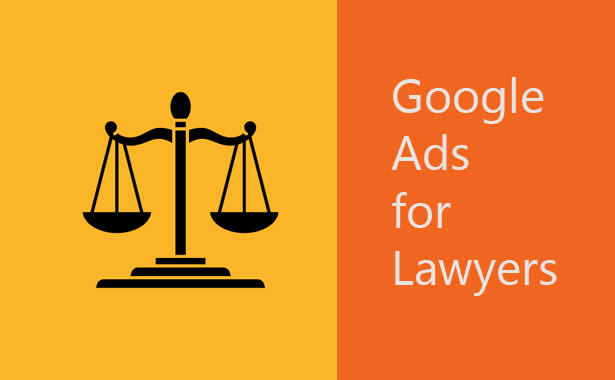Contents
Introduction
In today’s digital age, lawyers and law firms are increasingly turning to online platforms for client acquisition. Among these platforms, Google Ads stands out as a pivotal tool for legal professionals. This blog post delves into the essentials of Google Ads for lawyers, highlighting its significance in reaching potential clients effectively and efficiently.
Google Ads, a form of Pay-per-click advertising, offers a targeted and strategic approach for lawyers aiming to connect with their desired audience. In this guide, we will explore how Google Local Services Ads for lawyers can be tailored to the specific needs of law firms, covering everything from setting up an account to crafting impactful ad content and strategizing keyword use. As a law firm looking to optimize client outreach, understanding and leveraging Google Ads is crucial. Let’s begin our journey into the world of Google Ads for lawyers and discover how this powerful tool can transform your client acquisition strategy.
Understanding Google Ads for Lawyers
Google Ads has revolutionized the way law firms approach client acquisition. At its core, Google Ads for lawyers is a strategic model that leverages Pay-per-click (PPC) advertising, enabling law firms to display their services to potential clients actively searching for legal assistance. This model is not just about visibility; it’s about connecting with the right audience at the right time.
For lawyers, the beauty of Google Ads lies in its precision targeting. Unlike traditional advertising, where messages are broadcasted to a broad audience, Google Ads allows you to focus on individuals actively seeking legal services. This level of specificity means that your ad spend is directed towards potential clients who have a genuine interest in what you offer, increasing the chances of conversion.
PPC advertising through Google Ads is particularly beneficial for lawyers due to its cost-effectiveness. You only pay when someone clicks on your ad, making it a financially prudent choice for law firms of all sizes. This performance-based model ensures that your marketing budget is being used efficiently, maximizing return on investment.
Furthermore, Google Ads provides valuable insights into customer behavior and preferences. These analytics help law firms understand their audience better, allowing for more targeted and effective marketing strategies. By leveraging the data-driven capabilities of Google Ads, lawyers can refine their advertising efforts, ensuring that they reach potential clients with the right message at the right time.
Choosing the Right Google Ad Campaign Type for Law Firms
Selecting the appropriate Google Ad campaign type is crucial for law firms to maximize the impact of their Digital Marketing efforts. Google offers various campaign types, each with its unique features and benefits. For lawyers, understanding these options is key to tailoring their approach for optimal client acquisition.
1. Search Campaigns
These are the most common and often the most effective for law firms. When potential clients search for keywords related to legal services, your ads appear in the search results. This direct approach is ideal for capturing high-intent users who are actively seeking legal assistance.
2. Display Campaigns
These campaigns show your ads on websites and apps across the Google Display Network. While they are less targeted than search campaigns, they are excellent for building brand awareness and keeping your firm top-of-mind.
3. Video Campaigns
With video campaigns, you can advertise on YouTube and other video platforms. This format is perfect for engaging potential clients with compelling narratives or testimonials about your law firm.
4. Shopping Campaigns
Although less common for law firms, shopping campaigns can be used creatively, for instance, to promote legal books or seminars.
5. App Campaigns
If your law firm has developed an app for client services, this campaign type can help increase app installations and engagement.
For most law firms, a combination of search and display campaigns tends to yield the best results. Search campaigns target users actively seeking legal services, while display campaigns help in creating a strong brand presence. Video campaigns can also be highly effective for engaging potential clients with impactful stories about your firm and its successes.
Setting Up Your Google Ads Account
Creating a Google Ads account is a pivotal step for law firms venturing into online advertising. The process is straightforward, and connecting it to your Google Business profile enhances your online presence significantly. Here’s a step-by-step guide to get you started with Google Ads for lawyers.
- Create a Google Ads Account: Visit the Google Ads website and sign up using your law firm’s business email. This ensures all your ad campaigns and related activities are in sync with your firm’s professional identity.
- Set Your Advertising Goal: Google Ads will prompt you to define your advertising goal. For law firms, this could be anything from increasing phone calls, directing traffic to your website, or encouraging clients to visit your physical office.
- Define Your Audience: Specify who you want to target with your ads. This could be based on geographic location, age, interests, or online behaviors. For law firms, targeting by location is particularly effective, as legal services are often sought within specific jurisdictions. This information is usually collected through Client Intake Forms.
- Connect with Google My Business: Linking your Google Ads account with your Google My Business profile is essential. This step ensures your firm appears in local searches, a key strategy for law firms looking to attract local clients.
- Set Your Budget: Decide how much you want to spend on your campaigns. Google Ads for lawyers offers flexibility, allowing you to start small and adjust your budget as you gauge the campaign’s effectiveness.
- Choose Your Keywords: Select relevant keywords related to your legal services. This step is crucial in ensuring that your ads appear in relevant search queries. More detailed strategies on keyword selection will be discussed in a later section.
- Create Your First Campaign: Set up your first ad campaign by writing a compelling ad copy and choosing appropriate placements. Remember, the content should resonate with your target audience while highlighting your firm’s unique value proposition.
- Review and Launch: Before going live, review all the settings and ensure everything aligns with your firm’s marketing objectives. Once satisfied, launch your campaign.
By following these steps, your law firm can establish a strong foundation in Google Ads. The next sections will dive into crafting effective ad content and developing a keyword strategy, both crucial elements for successful Google Ads for lawyers.
Crafting Effective Ad Content
For law firms, creating compelling ad content is critical in the competitive landscape of Google Ads for lawyers. The right combination of headlines, descriptions, and calls to action can significantly influence the success of your campaigns. Here are tips to help you write ad copy that resonates with potential clients.
- Write Attention-Grabbing Headlines: The headline is the first thing potential clients see. It should be concise, clear, and directly address the needs or concerns of your target audience. For instance, “Experienced Family Law Attorneys” or “Immediate Legal Consultation Available.”
- Clear and Persuasive Descriptions: The description should provide more details about your services and what sets your firm apart. Use persuasive language that speaks to the benefits of choosing your firm, such as personalized attention, a track record of success, or specific areas of expertise.
- Action-Oriented Language: Your ad should encourage potential clients to take action. Use strong call-to-action (CTA) phrases like “Contact Us Today,” “Schedule a Free Consultation,” or “Get Expert Legal Advice Now.”
- Highlight Your Unique Selling Proposition (USP): What makes your law firm stand out? It could be your years of experience, your success rate, specialized services, or client testimonials. Make sure this is clearly communicated in your ad.
- Use Relevant Keywords: Incorporate keywords that you have identified as important to your target audience. This not only helps in making your ad more relevant but also improves its chances of being displayed for the right searches.
- Ensure Consistency with Landing Pages: The message on your ad should align with the content on your landing page. This consistency builds trust and encourages potential clients to take the desired action once they click on your ad.
- Test and Refine: Continuously test different versions of your ad copy to see what resonates most with your audience. Use A/B testing to compare different headlines, descriptions, and CTAs to find the most effective combination.
Crafting effective ad content requires a balance of creativity and strategic planning. By following these tips, law firms can develop Google Ads that capture attention, communicate value, and encourage potential clients to take action.
Keyword Strategy for Law Firms
A successful Google Ads campaign for lawyers hinges on a well-thought-out keyword strategy. Keywords are the linchpin of any PPC campaign, as they connect your ads with your target audience’s search queries. Here’s how law firms can develop an effective keyword strategy:
Conduct Comprehensive Keyword Research: Start by identifying keywords that potential clients might use when searching for legal services. Tools like Google Keyword Planner can provide insights into search volume and competition levels. Consider including both broad terms like “divorce lawyer” and more specific phrases like “child custody attorney in [City].”
Understand User Intent: Different keywords signify different user intents. For instance, someone searching for “free legal advice” might not be as ready to engage a lawyer as someone searching for “best corporate lawyer near me.” Tailor your keywords to match the level of intent that aligns with your services.
Use Localized Keywords: As a law firm, your clientele is likely local or regional. Include location-based keywords to attract clients in your area, such as “personal injury lawyer in [City]” or “[State] employment law attorney.”
Leverage Long-tail Keywords: These are longer and more specific keyword phrases that tend to have lower competition and higher conversion rates. For example, “affordable estate planning lawyer for seniors in [Location]” could be a valuable long-tail keyword for a specialized law firm.
Implement Negative Keywords: Negative keywords prevent your ads from showing up for irrelevant searches. This might include terms like “free,” “pro bono,” or “DIY legal help” if they don’t align with the services you offer.
Regularly Review and Adjust Keywords: Keyword trends can change over time. Regularly review your keyword performance and adjust your strategy accordingly. This might involve adding new keywords or pausing those that aren’t performing well.
An effective keyword strategy ensures that your Google Ads are seen by the right people at the right time, increasing the likelihood of attracting qualified leads. Remember, it’s not just about driving traffic to your site; it’s about attracting potential clients who are genuinely interested in the legal services you offer.
Read more: 19 Easy Ways to Increase Clients With Ads
Targeting and Budgeting in Google Ads
For law firms, effective targeting and budgeting in Google Ads are essential to ensure that their marketing spend yields the best possible return. Proper targeting helps you reach your ideal clients, while sensible budgeting ensures your campaign is financially sustainable. Here’s how you can optimize these aspects in your Google Ads for lawyers campaign.
Geographic Targeting: Law firms typically serve clients in specific geographic regions. Use location targeting in Google Ads to display your ads to people in your city, state, or region. This ensures that your ads are seen by those most likely to need your services.
Demographic Targeting: Depending on your area of practice, certain demographic groups might be more relevant. You can target ads based on age, gender, income level, and more to reach your ideal client demographic.
Device Targeting: Consider the devices your potential clients are using. If your target audience predominantly uses mobile devices, optimize your ads for mobile viewing and interaction.
Setting a Budget: Determine your budget based on the Cost-Per-Click (CPC) of your selected keywords and the competitive landscape. Start with a budget you’re comfortable with and monitor the performance. Google Ads offers flexibility to adjust your budget at any time.
Daily vs. Lifetime Budgeting: You can set daily budgets to control how much you spend each day or a lifetime budget for the campaign’s duration. Adjust according to the campaign’s performance and your marketing goals.
Using Bidding Strategies: Google Ads provides several bidding strategies like cost-per-click (CPC) bidding, cost-per-thousand impressions (CPM), and cost-per-acquisition (CPA) bidding. Choose a strategy that aligns with your campaign goals, whether it’s increasing website visits, generating leads, or driving specific actions.
Monitoring and Adjusting: Regularly review your campaign’s performance. Look at metrics like click-through rates (CTR), conversion rates, and return on ad spend (ROAS). Make adjustments to targeting and budgeting as needed to optimize campaign performance.
Effective targeting and budgeting are vital for the success of your Google Ads campaigns. By focusing on these aspects, law firms can attract more qualified leads, maximize their ad spend, and achieve better ROI on their marketing efforts.
Read more: Client Relationship Management: How CRM Can Generate Leads
Optimizing Google Ads Campaigns
Optimization is key in making Google Ads for lawyers more effective and efficient. An optimized campaign not only reaches more potential clients but also maximizes your return on investment. Here are steps to fine-tune your Google Ads campaigns:
- Organize Ad Groups by Themes: Structure your ad groups around specific themes or practice areas of your law firm. This could include different ad groups for family law, criminal defense, personal injury, etc. Such organization ensures that your ads and keywords are highly relevant to the specific services you’re promoting.
- Refine Ad Copy: Regularly review and update your ad copy to ensure it remains compelling and relevant. Use data from your campaign performance to test different headlines, descriptions, and calls to action. This process of A/B testing helps in identifying what resonates best with your target audience.
- Use Extensions Wisely: Ad extensions provide additional information and encourage users to interact with your ad. Use sitelink extensions to link to specific pages on your site, callout extensions for unique selling points, or call extensions to enable direct phone calls.
- Monitor Keyword Performance: Keep an eye on how your keywords are performing. Pause or replace those that aren’t delivering the desired results. Optimize for high-performing keywords and consider adding new relevant keywords to expand your campaign’s reach.
- Track Conversions: Set up conversion tracking to understand how your ads lead to valuable client actions like form submissions, phone calls, or consultations. This information is crucial for understanding the ROI of your campaigns.
- Adjust Bids and Budgets: Based on your campaign performance, adjust your bids for keywords and overall budget allocation. Invest more in campaigns that are performing well and reconsider or optimize those that aren’t.
- Stay Updated with Google Ads Features: Google frequently updates its Ads platform. Stay informed about new features and best practices to ensure your campaigns leverage the latest tools and techniques.
- Analyze and Report: Regularly analyze your campaign data and generate reports to understand trends, successes, and areas needing improvement. This ongoing analysis is crucial for continual optimization of your campaigns.
Optimizing your Google Ads campaigns is a continuous process. By following these steps, law firms can ensure their campaigns are not only reaching their target audience but are also cost-effective and generating valuable leads.
Conclusion
In conclusion, Google Ads for lawyers is a powerful tool for client acquisition and brand building. By understanding and effectively implementing the different aspects of Google Ads – from setting up an account, crafting compelling ad content, to developing a robust keyword strategy, and optimizing campaigns – law firms can significantly enhance their online presence and attract more clients.
The targeted nature of Google Ads, combined with the ability to track and analyze campaign performance, provides law firms with a competitive edge in a crowded digital landscape. The key is to remain agile, continuously optimizing your campaigns based on performance data and changing market trends.
As you navigate the world of Google Ads for lawyers, consider the benefits of integrating advanced legal software solutions. RunSensible offers comprehensive legal case management software, designed to streamline client management and conversion tracking. Our platform can complement your Google Ads efforts, ensuring that leads generated are efficiently managed and converted into clients.
We invite you to explore Runsensible’s legal case management software and discover how it can enhance your firm’s client acquisition and retention strategies. Optimize your law practice with our cutting-edge tools and take the next step in your firm’s digital marketing journey.
FAQs
1. What makes Google Ads an effective platform for lawyers and law firms?
Google Ads for lawyers provides a targeted approach to advertising, allowing you to reach potential clients precisely when they are searching for legal services. This platform offers various campaign types suitable for different marketing objectives, from increasing brand visibility to generating direct leads. Additionally, its pay-per-click model ensures you’re investing in results, making it a cost-effective solution for law firms of all sizes.
2. How can I determine the right budget for my Google Ads campaigns?
Determining the right budget for your Google Ads campaigns involves evaluating several factors, including the competitiveness of your keywords, your campaign objectives, and the typical cost-per-click in your legal practice area. Start with a budget that aligns with your firm’s marketing goals and financial capacity. Use Google Ads’ analytics to monitor your campaign performance and adjust your budget accordingly for maximum ROI.
3. Can Google Ads work in conjunction with other digital marketing efforts?
Absolutely. Google Ads can effectively complement other digital marketing strategies such as SEO, content marketing, and social media presence. While Google Ads provides immediate visibility and lead generation, other strategies help build long-term brand authority and online presence. Integrating Google Ads with a broader digital marketing plan creates a comprehensive approach to online marketing for law firms.
Disclaimer: The content provided on this blog is for informational purposes only and does not constitute legal, financial, or professional advice.









